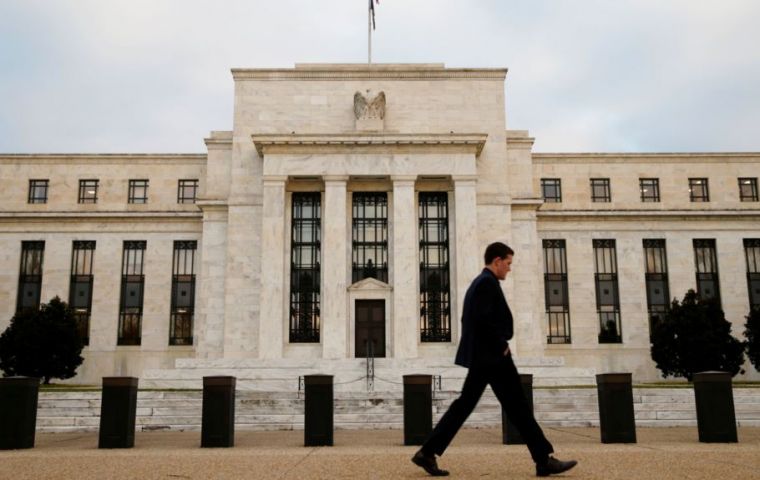MercoPress. South Atlantic News Agency
Fed proposes simplifying trading rules for foreign banks and funds
 The Fed alongside other U.S. regulators, proposed rewriting the “Volcker Rule” introduced following the 2007-09 financial crisis
The Fed alongside other U.S. regulators, proposed rewriting the “Volcker Rule” introduced following the 2007-09 financial crisis  Former Chairman Paul A. Volcker - Foreign banks have complained the Volcker Rule improperly affects their non-U.S. operations since it applies to any foreign bank related with a U.S. entity or affilia
Former Chairman Paul A. Volcker - Foreign banks have complained the Volcker Rule improperly affects their non-U.S. operations since it applies to any foreign bank related with a U.S. entity or affilia Foreign banks and funds are set to benefit from a move by U.S. regulators to simplify a trading rule that foreign banks and regulators say has inadvertently complicated firms operating as far afield as Europe and Asia. The Federal Reserve, alongside other U.S. regulators, on Wednesday proposed rewriting the “Volcker Rule” introduced following the 2007-2009 financial crisis in a bid to simplify the regulation and make it easier for banks to comply.
Created by the 2010 Dodd-Frank financial reform law, the rule bans lenders that accept U.S. taxpayer-insured deposits from engaging in proprietary trading or investing in investment vehicles such as hedge funds or private equity funds.
Foreign banks have often complained that the Volcker Rule improperly affects their non-U.S. operations because it broadly applies to any foreign bank that has a relationships with a U.S. entity or affiliate.
Many overseas funds that are organized and offered exclusively outside the United States are also caught by the rule because they are often part of a broader foreign banking group.
Charles Horn, a partner at law firm Morgan Lewis in Washington, said the proposal released on Wednesday contains several elements that should benefit global banks, as well as U.S. institutions.
He pointed to a move by the regulators to make it easier for foreign banks to qualify for an exemption from the rule, including scrapping the requirement that to qualify they must not trade through any U.S. entity.
The proposal also tries to address some of the problems related to overseas funds, including extending for another year a one-year exemption granted in 2017.
Foreign regulators have lobbied the United States for several years to ease up on how the rule applies to overseas entities, including during a bilateral meeting between European and U.S. authorities in January, according to two sources.




Top Comments
Disclaimer & comment rulesCommenting for this story is now closed.
If you have a Facebook account, become a fan and comment on our Facebook Page!